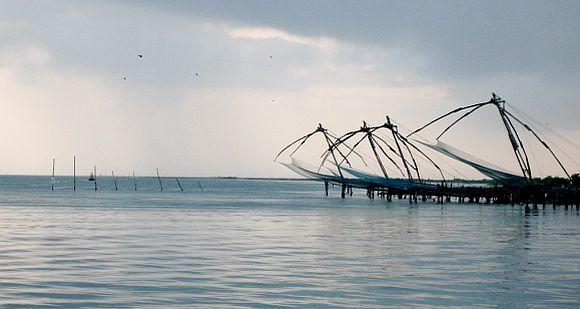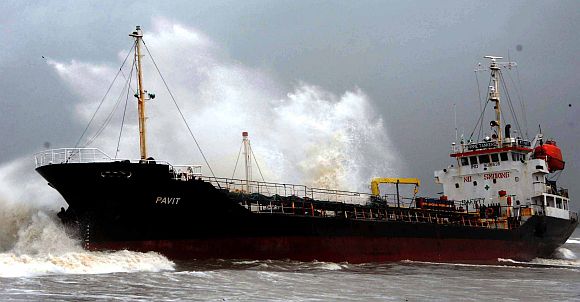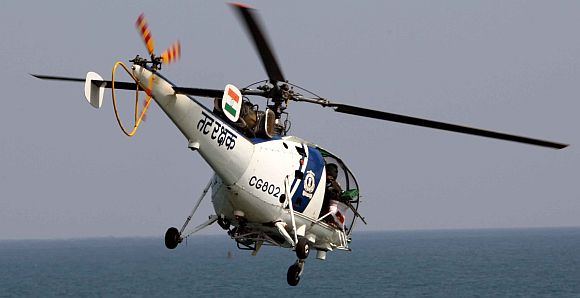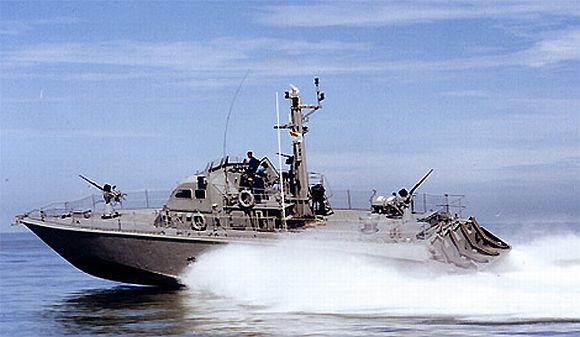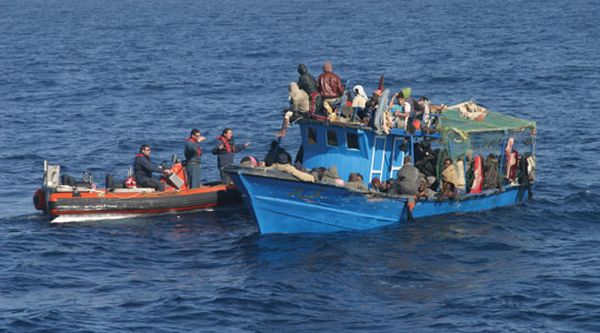 | « Back to article | Print this article |
Three years on, India's coasts are still NOT safe
The November 26, 2008 attack in Mumbai showed India how vulnerable its seas were. It also taught terrorist groups a new way of carrying out attacks.
Today, several reports put out by both the home ministry and also the Intelligence Bureau show that the seas continue to be the biggest cause for concern and that there is a long way to go before they are secure completely.
Almost every security review meeting pertaining to terror held in New Delhi ends up discussing coastal security.
Although Indian agencies have managed to step up the vigil along the coasts, the lack of intelligence has been a cause of worry. Around 1,200 fishermen have been roped in for the task, but it cannot be said with conviction whether it has worked properly.
Click on NEXT to read further...
Three years on, India's coasts are still NOT safe
Take for instance the Panama-registered vessel M T Pavit, which drifted towards the Indian shores without authorisation on July 30.
There was a similar incident on the shores of Gujarat as well.
While these incidents caused a scare, even though there was nothing really in it, it still went on to show that India had absolutely no information about what was happening on its waters. This clearly showed the lack of intelligence along the coasts.
A Mangalore-based officer pointed out that the plan to hire fishermen to form part of the human intelligence chain was a good one, but even they had their limitations.
Three years on, India's coasts are still NOT safe
Tracking of enemy ships or trawlers requires expertise and one cannot completely depend on human intelligence for the same. They could only provide tip-offs, but the real job needs to be undertaken by experts.
The problem for India is that all measures pertaining to security look good on paper. There are various think tanks shooting in their suggestions every now and then. However, in reality, these never are implemented.
The CAG report clearly states that coastal security still remained a concern, as it was ill-equipped.
Manning the Indian coast is not an easy job, according to security experts.
Three years on, India's coasts are still NOT safe
There is a need for proper coordination from both the Union and state governments in order to prevent any untoward incident that may emerge from the seas.
Post 26/11 some state governments set up coastal police stations. There are around 150 coastal police stations apart from 183 interceptor boats in the country. But problems exist with regard to manpower.
A recent meeting in New Delhi decided that more resources will be pumped in and there would be more emphasis on human intelligence along the coasts, as it is impossible to appoint too many people officially for the job.
Three years on, India's coasts are still NOT safe
Terror groups, meanwhile, will continue to prefer to take to the seas to launch future attacks.
Over the past three years there has been a lot of movement on part of groups such as the Lashkar-e-Tayiba to set up bases on islands. This is one of the primary reasons why they have been targeting countries such as Maldives and even linking it to coastal areas in India like Kerala.
A senior police officer pointed out that the bigger challenge is the smuggling that continues unabated along the coasts -- the most notorious of them being the Raigad coast in Maharashtra.
As per reports, smugglers work hand in glove with the security agencies. Just one slip-up and this could spell disaster.
Three years on, India's coasts are still NOT safe
It has been spoken several times that terrorists and the underworld are working in tandem and hence there is no reason to make light of fact that terrorists would not be using the boats used by smugglers to gain entry through the seas.
The officer goes on to add that many high-profile projects such as Operation Swan, which has been in existence since the past 18 years, and the Coastal Scheme of 2005 have not yielded any results.
There was ample time to study the security infrastructure over the years, but unfortunately the response has always been reactive.
India continues to make the same mistakes even today. Despite so many projects, which look brilliant on paper, there are issues such as manpower, coordination, lack of proper equipments among others which continue to haunt agencies managing the coast.
